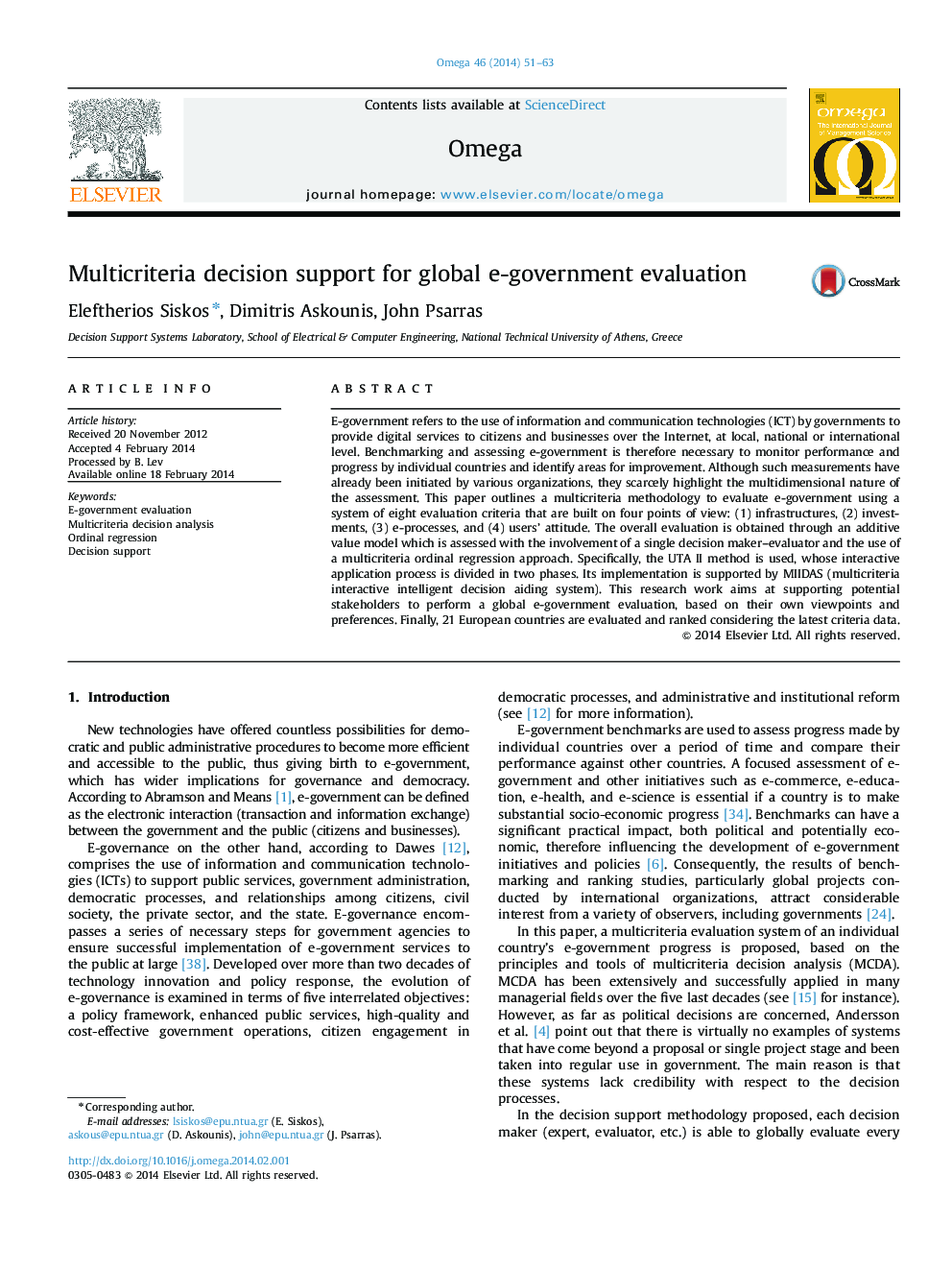| Article ID | Journal | Published Year | Pages | File Type |
|---|---|---|---|---|
| 1032606 | Omega | 2014 | 13 Pages |
•We develop a multicriteria methodology to evaluate global e-government.•We support a decision maker to form and materialize a personal evaluation model.•Twenty-one EU countries are assessed and ranked over their e-government development.
E-government refers to the use of information and communication technologies (ICT) by governments to provide digital services to citizens and businesses over the Internet, at local, national or international level. Benchmarking and assessing e-government is therefore necessary to monitor performance and progress by individual countries and identify areas for improvement. Although such measurements have already been initiated by various organizations, they scarcely highlight the multidimensional nature of the assessment. This paper outlines a multicriteria methodology to evaluate e-government using a system of eight evaluation criteria that are built on four points of view: (1) infrastructures, (2) investments, (3) e-processes, and (4) users’ attitude. The overall evaluation is obtained through an additive value model which is assessed with the involvement of a single decision maker–evaluator and the use of a multicriteria ordinal regression approach. Specifically, the UTA II method is used, whose interactive application process is divided in two phases. Its implementation is supported by MIIDAS (multicriteria interactive intelligent decision aiding system). This research work aims at supporting potential stakeholders to perform a global e-government evaluation, based on their own viewpoints and preferences. Finally, 21 European countries are evaluated and ranked considering the latest criteria data.
